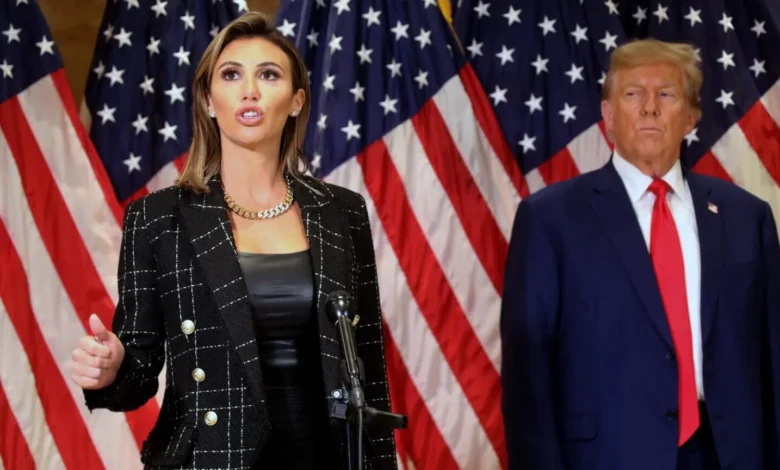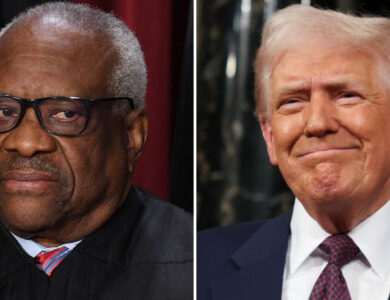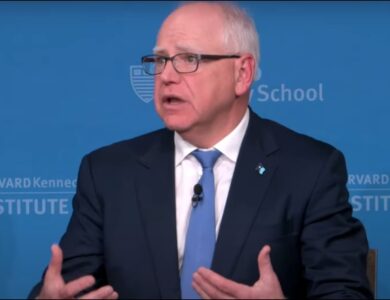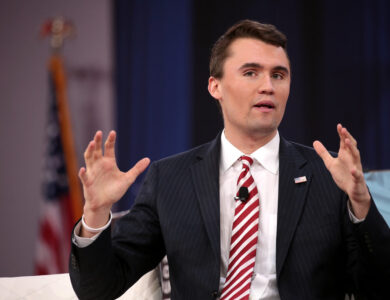Judge Rules Former Trump Lawyer Habba ‘Unlawfully’ Serving as U.S. Attorney

Trump’s former lawyer Alina Habba is once again having to battle the justice system for the right to be U.S. Attorney for the District of New Jersey.
On Thursday, a judge ruled that Habba had been “unlawfully” acting as the U.S. attorney despite being appointed by President Donald J. Trump to perform the duties of the job.
The legal conflict originated when a panel of judges decided that Habba could no longer serve as Acting U.S. Attorney in the federal district, spurring President Trump to pull a maneuver whereby her replacement was fired and he reappointed her.
Judge Matthew Brann, an Obama appointee sitting in the Middle District of Pennsylvania, issued a 77-page order finding that Habba has been “without lawful authority” to serve since July 1. The decision came after criminal defendants in New Jersey challenged her appointment, arguing it violated the Federal Vacancies Reform Act.
“Faced with the question of whether Ms. Habba is lawfully performing the functions and duties of the office of the United States Attorney for the District of New Jersey, I conclude that she is not,” Brann wrote. He added that her signatures on case filings were invalid and that she “must be disqualified from participating in any ongoing cases.”
Brann’s ruling does not throw out the criminal indictments of the defendants who filed the challenge but bars Habba from prosecuting them, leaving the cases to proceed under other leadership in the office. He placed the ruling on hold to give the Justice Department time to appeal.
Habba, who gained national prominence as one of Trump’s defense attorneys, had been installed as interim U.S. attorney earlier this year. Under federal law, that status was limited to 120 days unless extended by the court or confirmed by the Senate.
When the judges in New Jersey declined to keep her on and instead appointed career prosecutor Desiree Leigh Grace, Trump and Attorney General Pam Bondi intervened. They fired Grace, pulled Habba’s nomination as permanent U.S. attorney, and reinstalled her as “acting” U.S. attorney under a separate vacancy statute that they argued gave her another 210 days in charge. Brann rejected that maneuver outright.
“A statutory interpretation that opens a gaping loophole in this tightly crafted scheme meant to provide only limited flexibility and prevent ‘manipulation’ flies in the face of the goal that Congress was trying to accomplish,” he wrote. “Although clearer text could require such a result, the Government’s arguments reaching such a conclusion through vague implication must fail.”
The ruling is the latest turn in what has become a standoff between the Trump administration and the judiciary over U.S. attorney appointments in blue states. Brann noted that the administration had attempted similar tactics in California and New York, where nominees favored by the president face little chance of winning Senate confirmation.
The defendants who challenged Habba’s authority included individuals charged with drug trafficking and fraud. One of them, Julien Giraud, claimed that allowing Habba to prosecute him violated his constitutional rights because she was installed through an unlawful process. Brann agreed, writing that the appointments violated the Federal Vacancies Reform Act’s limits and timeline.
Brann was assigned the matter after the chief judge of the Third Circuit ruled that New Jersey’s federal judges were conflicted because of their earlier decision to remove Habba. His ruling now leaves the Justice Department and White House with a choice: appeal the decision and continue to fight for Habba to remain, or move forward with a new appointment.
Habba, however, is celebrating a legal victory in the State of New York.
Attorney General Letitia James’ civil case against Donald Trump has completely fallen apart, as a panel of appellate judges struck down the $500 million civil penalty against him as unconstitutional under the Eighth Amendment.
“Today’s ruling by the New York appeals court is a resounding victory for President Trump and his company,” she wrote. “The court struck down the outrageous and unlawful $464 million penalty, confirming what we have said from the beginning: the Attorney General’s case was politically motivated, legally baseless, and grossly excessive.”





